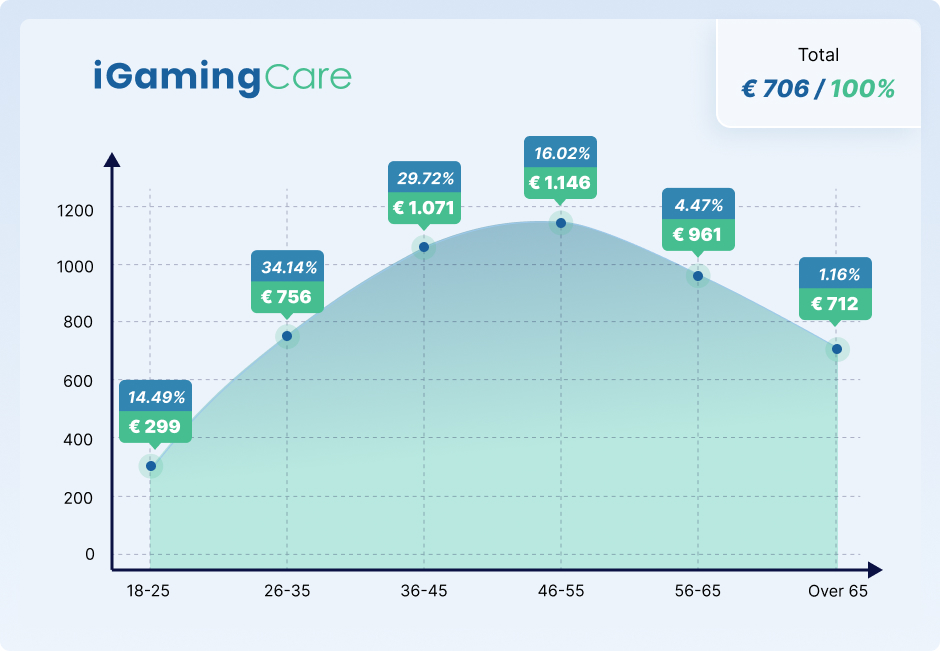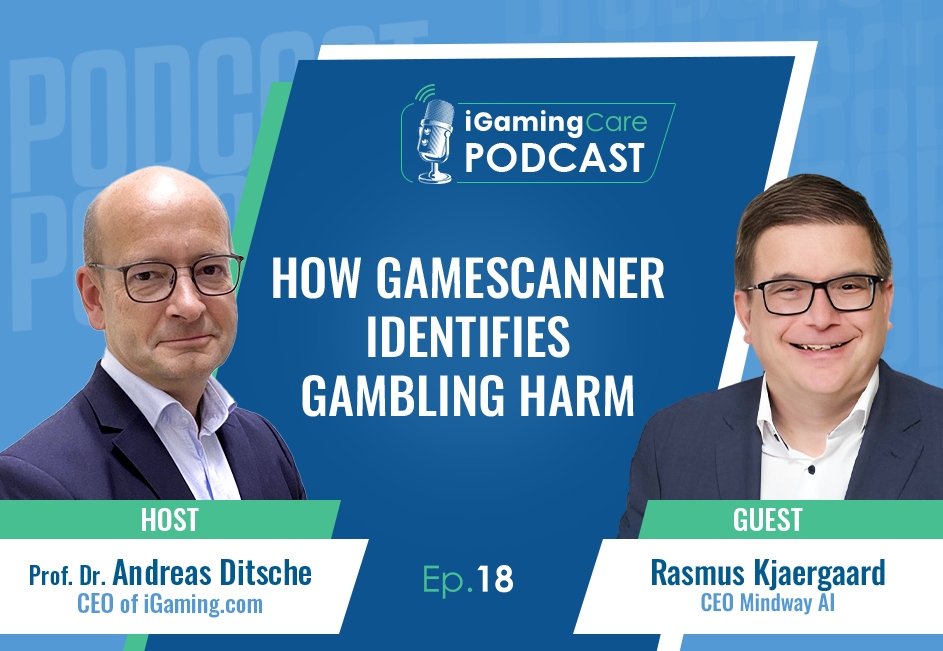
Spain’s Gambling Regulator Reports 21.63% Surge in Player Registrations

The number of active players in Spain rose by a striking 21.63% in 2024, according to the latest annual report from the DGOJ (Directorate-General for the Regulation of Gambling).
This sharp increase raises a critical question: Are player protection measures keeping pace with the market’s rapid growth?
Active accounts approached two million, with men representing over 83% of the total. Spain now ranks among Europe’s fastest-growing regulated gambling markets — but what does this surge mean for responsible gambling?
Let’s explore the report’s findings — and what they reveal about the future of player protection in Spain.
Gambling Report Methodology
The DGOJ is Spain’s main gambling regulator. It releases a report about online gambling activity and player demographics each year.
The Annual Profile of the Online Gambler 2024 report draws on data submitted by licensed operators. Licensees must provide detailed records. These include player registrations, activity levels, and game participation. The figures cover all regulated online gambling activity from January 1 to December 31, 2024.
“Player registrations” refers to unique, verified accounts created with licensed operators. Operators and regulators work together to cross-validate player activity. This way, the report’s methodology provides reliable information.
Key Findings: A 21.63% Jump in Player Registrations
The headline statistic from the 2024 report is clear, player registrations rose by 21.63% year-on-year, reaching 1,991,550 active players. This marks the fastest annual growth rate since Spain’s regulated online gambling market was established.
A clear division exists between the sexes. Of the nearly 2 million active gamblers, 83.15% were men, while women made up 16.85%. Players aged 18 – 45 represented 85.70% of the market. Here is a summary of the key metrics of the 2024 report:
| Metric | Value |
|---|---|
| Total active players | 1,991,550 |
| Men | 83.15% |
| Women | 16.85% |
| Average monthly players | 953,182 |
| Average active time | 5.74 months per player |
| Less than 1 month activity | 21.91% |
The report revealed that the average number of active players per month is 953,182. The active time for registered users averaged 5.74 months. Interestingly, 21.91% of gamblers actively participated for less than a month.
The 21.63% rise in player registrations does not continue past trends. The DGOJ’s report showed a much lower year-on-year increase of 2.68% in 2023 and 8.44% in 2022. The sharp spike in players in 2024 is likely fueled by marketing.
The 2024 State of Online Gaming report showed marketing spend increased 30.4% to €526.3m. The increase in player numbers highlights the need to reassess the effectiveness of Spain’s gambling regulations.
Betting and Casino Sectors Dominate
The sharp rise in registrations is largely driven by increased interest in betting and casino games. Betting attracted over 1.5 million players, up 25.43%, while casino participation rose 29.23%. Poker saw a more modest 13% increase, with bingo rising by just 1.69%.
| Segment | Gamblers | % YOY |
|---|---|---|
| Betting | 1,568,197 | 25.43% |
| Bingo | 91,761 | 1.69% |
| Casino | 1,123,839 | 29.23% |
| Poker | 394,898 | 13.02% |
| Total | 1,991,550 | 21.63% |
Notably, over half of the players (51.96%) engaged with only one type of game, with betting and casino games being the most popular options:
- Betting – 36.25%
- Bingo – 0.55%
- Casino – 11.37%
- Poker – 3.78%
How Much Are Spanish Players Spending?
On average, active online players spent €706 annually, equating to about €58.82 per month or €13.57 a week. This figure is derived from the total number of online players, not the general adult population.
Men typically spent €740 per year, while women spent €538. Age also plays a significant role in spending patterns. Players aged 46 – 55 had the highest average annual expenditure at €1,146. In contrast, the youngest group (18 – 25) spent the least, averaging €299.

21.25% of players received net winnings, with 5% earning over €489. The report also highlighted that 35% of active gamblers spend more than €147 yearly.
The Impact on Responsible Gambling
With nearly two million active players, Spain’s responsible gambling infrastructure is under pressure. The rapid growth in registrations raises concerns about the scalability of player protection measures. Additionally, it highlights the challenges operators face. Will they be able to identify and intervene with at-risk individuals on a large scale?
Spain already has a solid responsible gambling framework, thanks to the introduction of the Royal Decree on Safer Gambling in 2023. The order mandated over 30 new responsible gambling measures. These include risk profiling, youth protections, and a national self-exclusion register.
Building on this foundation, the DGOJ presented a draft of its Safe Gambling Program 2026-2030 this week. It focuses on three core areas:
- assessing the current gambling landscape
- implementing preventive measures
- safeguarding players
The Safe Gambling Program 2026-2030 includes various player protection standards. Proposed responsible gaming measures include:
- Deposit Limits: Set deposit limits of €600 daily and €1,500 weekly for all licensed operators to prevent excessive spending.
- AI-Based Monitoring: Use AI to detect risky gambling behaviors, offering personalized alerts and interventions.
- Advertising Restrictions: Restrict gambling ads, particularly those involving influencers or celebrities, to protect vulnerable groups.
- Research Funding: Allocate €1.05 million in grants for research into gambling-related harm, including early detection and gender-specific impacts.
- Advisory Council Restructuring: Revamp the Responsible Gambling Advisory Council with experts from various sectors to guide responsible gambling policies.
The Responsible Gambling Advisory Council has until August to submit its feedback on the draft. The final version is expected to guide Spain’s gambling policies and responsible gaming framework through to 2030.
Comparative Insight: Lessons from the Nordics
Spain’s rapid increase in online gambling participation mirrors trends seen in Nordic countries, where digital gaming has also surged.
- Denmark: Online gambling accounted for 68% of total market revenue in 2024, with mobile platforms driving a 13.1% increase in online casino GGR.
- Sweden: Online gambling revenue rose 5% in 2024, and 71% of Swedes gambled during the year. The market’s growth is largely attributed to increased regulatory stability.
- Norway: State-run operators saw a rise in local play, particularly among younger adults, prompting new safeguards for high-risk games.
Nordic countries’ regulatory measures offer valuable lessons for Spain. It can draw on these examples to strengthen its responsible gambling policies. Here are some of the player protection standards they have implemented:
- Mandatory age verification and deposit limits
- Sophisticated self-exclusion programs
- Real-time monitoring for risky behavior
- Targeted interventions for young adults
These measures have proven effective in preventing gambling-related harm. This especially applies to vulnerable groups. For example, Norway has implemented new gambling loss limits for under 25s. Similarly, the UKGC has introduced lower maximum slot bets for players aged 18-24.
The DJOG’s new Safe Gambling Program builds on these best practices and aligns with European regulatory standards. By considering safer gambling policies from other jurisdictions, it can make sure its new RG infrastructure is fit for purpose.
Conclusion and Implications for Stakeholders
Spain’s 21.63% surge in player registrations is a double-edged sword. On the one hand, it reflects the success of the regulated market. On the other hand, it heightens the need for advanced player protection.
Operators must invest in compliance, AI-driven monitoring, and player education. Policymakers should continue benchmarking against other leading jurisdictions. They must make sure that regulation evolves in step with market changes.
For the industry, the message is clear. Sustainable growth depends on trust, transparency, and a relentless focus on player well-being. The coming year will be pivotal, testing Spain’s ability to balance industry growth with responsibility.

